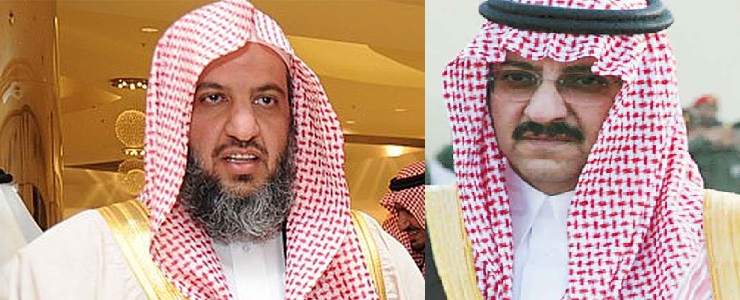Saudi Monarchy Plots Sectarian Executions
June 17, 2014
Washington DC -The Saudi Monarchy is planning to execute at least 26 Shia protesters and activists, including children, after a summary trial by an ultra-sectarian court controlled by the Saudi Minister of Interior Mohamed Bin Naif. According to our sources in Riyadh and Jeddah who work closely with the court, the trials and sentences were handed down by Bin Naif following private meetings with the court’s president Saleh Ibrahim Al Sheikh, a grandson of the founder of Wahhabism Mohammed Abdulwahhab.
The Specialized Criminal Court was established in 2008 under the direct control of Mohamed Bin Naif, the hardline minister of interior with a long list of human rights crimes and terrorism. Until last month, the court was run by Saleh Ibrahim Al Sheikh. The courts in Saudi Arabia are not independent and infamous for their sectarian and xenophobic nature. They are built on the most extreme and primitive foundation of the Najdi Wahhabi tribal traditions mixed with the pre-Islamic values and beliefs. The judges are not bound by any legal references or precedence, and can issue any sentences they see fit, as long as they do not contradict the monarchy’s requests.
Evidence has emerged that the court judges received millions of dollars in exchange for handing down harsh sentences, especially against Shia defendants, who they deem to be “killable” in accordance with the teachings of Wahhabism.
Judges working with the Saudi Ministry of Interior at the specialized court are:
1- Omar Abdulaziz Alhusin, Wahahbi cleric.
2- Abdullah Mohammed Al-Rashoud, Wahhabi cleric.
3- Yousef Al-Ghamdi, Wahhabi cleric.
4- Mohammed Abdullah Al-Muslim, Wahhabi cleric.
5- Ali Ashaban, Wahhabi cleric.
6- Bandar AlTuwaijri, Wahhabi cleric.
The court judges have repeatedly expressed sympathies with Salafi terror groups, such as AlQaeda and the Islamic State of Iraq and Sham (ISIS). Conversely, many AlQaeda detainees even those charged with capital crimes received light sentences or were released by the court. “We have received court orders to free detainees, including those facing charges punishable by the death penalty,” the detainees’ lawyer Abdulrahman AlJurais said in a statement in October, 2012.
Today, the government controlled daily AlRiyadh reported the sentencing of the four AlQaeda members who funded the terror group and stashed weapons. The defendants were sentenced to prison terms ranging from two to nine years. All the four were free during the trial.
Hundreds of these detainees were freed or paroled in the past six months by the judges. Many of them ended up joining the terror group ISIS – over 900 Saudi ISIS members has been killed in the past 23 months in Syria and Iraq.
The Saudi Monarchy Bureau of Investigation and Public Prosecution exhibit the same sectarian bias. The agency is staffed exclusively by Wahhabi clerics and adherents, the majority of whom view other Muslims, including Shia, as doomed to subservience. The president of the prosecutorial commission is Wahhabi cleric Mohamed Fahad AlAbdulah.
Adhering to the Saudi Wahhabi religious branch is a prerequisite of working in the Saudi Monarchy court system, making the court the most sectarian in the Middle East. All Saudi judges presiding over cases of Shia activists adhere to the extremist Wahhabi creed and view Shia Arabs as polytheists and enemies of God.
The Saudi Monarchy, considered to be the most sectarian regime in the world, bans Shia, blacks and other groups in the country from holding positions of power. There are no Shia or black mayors in the entire country, even in cities where the Shia account for the 95% of the population. Shia Arabs are also banned from serving in the military as officers, from holding diplomatic posts, and from working in the judiciary, internal and external security agencies, as well as many other senior public service positions.
Saudi Shia number four millions and form the largest Shia population in the Gulf Cooperation Council area. They live mainly in the oil-rich Eastern Province and other cities such as Madinah.



Comments are closed.